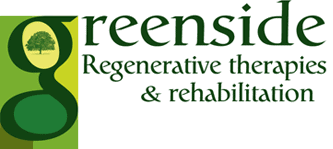Has your pet’s mobility and comfort been a concern for you as of late? Has their behaviour changed? If you are noticing these things, speak to your primary care vet today and seek advice for impaired passive range of movement in pets.
At Greenside Vets, we are passionate about ensuring every pet gets to live a long, healthy and happy life. When they are in pain because of their mobility, we aim to help get them back to full health. If you feel your pet has been struggling with their movement, speak to your primary care vet today and ask for a referral to Greenside for rehabilitation.
What is Impaired Passive Range of Movement?
Impaired range of movement refers to the restriction of natural movement of a joint when moved by an external force, without the animal using their own muscles. It is a condition that can affect any pet and a number of joints throughout their bodies, including hips, shoulders, elbows, knees and the spine.
More often than not, impaired passive range of movement can be a sign of underlying issues such as joint disease, muscle stiffness or neurological problems.
If you have noticed a change in your pet recently, seek advice from your primary care vet and ask for a rehabilitation referral to Greenside Regenerative Therapies & Rehabilitation today.
What Does Impaired Passive Range of Movement Mean for Your Pet?
As a pet owner, it is difficult to see your pet in pain and struggling in any way. When struggling with this restricted range of movement, your pet can be in pain and discomfort until it receives treatment. This can lead to a significantly altered quality of life. Discomfort can lead to a lower level of activity, changes in behaviour or a decreased interest in play. If you notice these changes, speak to your local primary care vet today.
An impaired passive range of movement can also limit your pet’s ability to perform daily activities such as walking, running, climbing or jumping. If your pet is usually very active, this can lead to further health issues due to the reduced activity. Avoid this as much as possible by getting your rehabilitation referral to Greenside quickly.
This impaired movement may be a sign of an underlying condition. Conditions such as arthritis, ligament injuries, muscle strains or neurological disorders could all be an underlying condition that can be identified by our team at Greenside once we have seen your pet upon referral. Our advanced diagnostics help us to fully assess your pet’s condition and find the underlying cause of their pain. Early detection of conditions is vital to prevent further complications and ensure your pet’s long-term health.
At Greenside Vets, we are able to help with early detection, tailored treatment and care plans and rehabilitation for your pets once a referral has been sent to us from your primary care vets. Seek your pet’s referral to us today and give them the best chance at a healthy future.
How Greenside Regenerative Therapies & Rehabilitation Can Help Your Pet
When we get a referral from your primary care veterinarian, we are able to complete a comprehensive assessment of your pet’s condition. Our experienced team will complete a thorough physical examination, review your pet’s medical history and perform any necessary diagnostics in order to accurately assess and diagnose the cause of your pet’s impaired passive range of movement.
Once our veterinarians have a clear and accurate diagnosis, they will be able to create a tailored treatment and care plan for your pet in order to achieve the best outcome. We aim to address the underlying cause of the movement impairment, alleviate your pet’s pain and improve their mobility and quality of life.
Advanced Therapeutic Options at Greenside
Greenside Regenerative Therapies & Rehabilitation offer a range of advanced therapeutic options that aim to treat an impaired passive range of movement:
- Laser Therapy: This is a non-invasive therapy that uses light energy to reduce inflammation, alleviate pain and promote tissue healing.
- Physiotherapy: Our physiotherapy treatment includes targeted exercises and manual techniques to improve joint mobility, muscle strength and function.
- Hydrotherapy: Taking place in our hydrotherapy pools, this provides a low-impact environment for your pet to exercise and strengthen their muscles without putting extra stress on their joints.
- Massage Therapy: Gentle massage therapy is ideal for helping to reduce muscle stiffness, improve your pet’s circulation and enhance relaxation.
Our aim is to provide ongoing support for both you and your pets. We offer continued monitoring and support of your pet’s condition in order to adjust treatment as needed and answer your questions or concerns throughout their rehabilitation journey.
If you feel that your pet is struggling with their mobility and appears in pain or discomfort, seek a referral to Greenside Vets from your primary care vet today and let us help your pet. Our rehabilitation centre for small animals aims to get your pets back to their healthy selves as quickly as possible.
When to Seek Referral to Greenside
When your pet is struggling and in pain, the signs can sometimes be difficult to spot. Some of the things to be aware of include limping, lameness, stiffness or difficulty rising, reluctance to move, changes in behaviour or visible signs of pain when moving.
If you notice any of these signs, visit your local primary care vet and seek a referral to Greenside Regenerative Therapies & Rehabilitation. Our team of skilled veterinarians are here to help you and your pet, giving them the best support and care.
Together, we can help your pet enjoy an active, comfortable and happy life once again.


